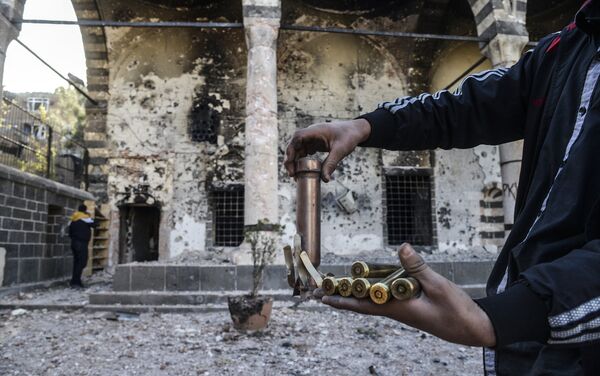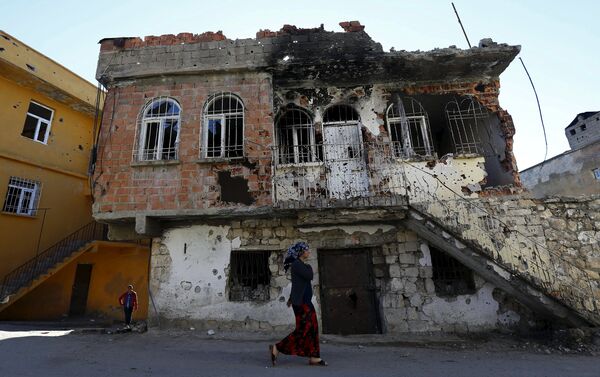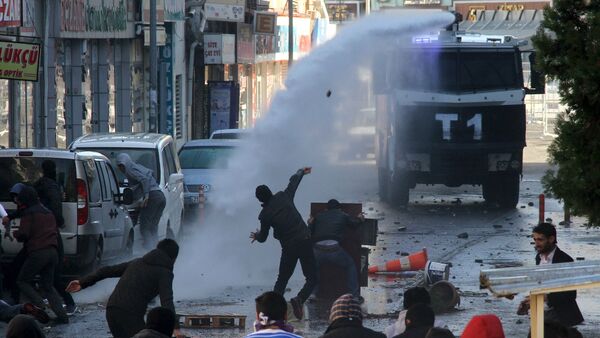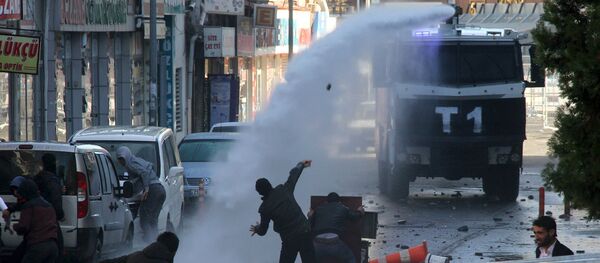"Somehow, the fact that NATO's second-largest army is fully mobilized on the Syrian border in a war against 16-year-old kids with AK-47s who have carved out 'liberated zones' in their neighborhoods is getting almost no coverage in international media," she wrote.
Turkish forces launched the latest operation to tackle the Kurdish insurgency after the peace process collapsed in 2015. Since then, Ankara has launched airstrikes against militants from the Kurdistan Workers' Party (PKK) in Turkey and neighboring countries.

Aydintasbas emphasized that the conflict has become far more dangerous. "Much of what took place in the 1990s was in the countryside, between Kurdish guerrillas and army units. This time, it is urban, just as deadly, and far more explosive," the journalist explained in an opinion piece for Politico.
"To be clear: We are not talking about a skirmish here or there; this is a conflict about tanks, artillery, snipers and heavy fire in densely populated areas," she noted.
The journalist maintains that neither side is capable of winning this war.
"Turkey's Kurdish issue cannot be solved through military means alone and Ankara's friends around the world would do well to urge a return to the negotiating table, rather than watch Turkey follow its neighbors' path to ethnic and sectarian warfare," she noted.

The worst-case scenario, according to Aydintasbas, cannot be ruled out. Photographs of Kurdish cities devastated by the conflict, which has already claimed more than 45,000 lives, look alarmingly similar to images made in Syria in 2011.
The journalist believes that Turkish authorities have to understand that the Kurds pose no threat. The ethnic minority, in her opinion, is "a prelude to building our democracy." Moreover, "Turkey's future and its borders are best secured through a lasting Kurdish peace."



